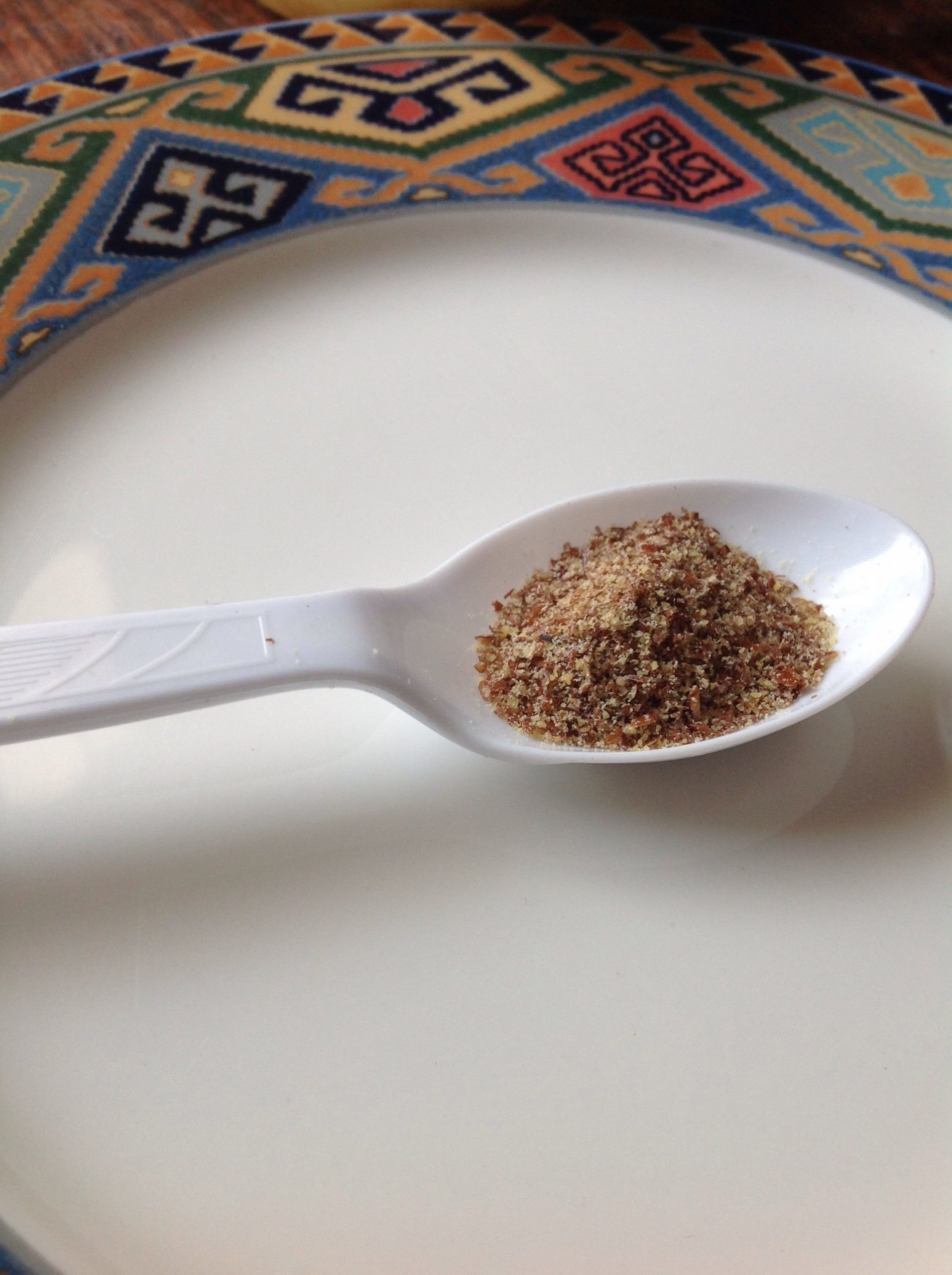Is Whey Protein Good for You?

Whey protein is a popular dietary supplement that has gained significant attention in recent years, particularly among fitness enthusiasts and athletes. It is derived from milk and is considered a complete protein, meaning it contains all the essential amino acids needed by the body. This blog post aims to explore the nutritional and health benefits of whey protein, while also addressing some potential concerns. Read this to know if whey protein is good for you or not.
Whey Nutritional Profile
Whey protein stands out for its exceptional nutritional profile, making it a popular choice among fitness enthusiasts, athletes, and individuals seeking to meet their protein needs. Let’s delve deeper into the specific components that make up the nutritional profile of whey protein. We’ll ask the question, is whey protein good for you?
Complete Protein Source
Whey protein is considered a complete protein because it contains all nine essential amino acids that the body cannot produce on its own. These essential amino acids are vital for various functions in the body, such as supporting muscle growth and repair, promoting immune function, and aiding in the synthesis of hormones and enzymes.
The essential amino acids found in whey protein include:
- Leucine: Leucine is a branched-chain amino acid (BCAA) that plays a crucial role in stimulating muscle protein synthesis. It helps to initiate the process of building and repairing muscle tissue, making it especially beneficial for individuals engaged in resistance training or seeking to preserve lean muscle mass.
- Isoleucine: Another BCAA, isoleucine, works in conjunction with leucine to support muscle protein synthesis and enhance muscle recovery. It also contributes to energy production and plays a role in regulating blood sugar levels.
- Valine: The third BCAA, valine, is involved in muscle metabolism and repair. It also helps maintain a healthy nitrogen balance in the body, which is essential for overall protein synthesis.
- Histidine: Histidine is involved in various physiological processes, including the production of red and white blood cells, tissue repair, and maintaining the myelin sheath, which protects nerve cells.
- Methionine: Methionine serves as a building block for numerous proteins and plays a vital role in various biochemical processes. It also contributes to the synthesis of other important compounds, such as glutathione, which acts as an antioxidant.
- Lysine: Lysine is involved in collagen synthesis, promoting skin health and tissue repair. It also plays a role in calcium absorption and the production of carnitine, a molecule involved in energy metabolism.
- Threonine: Threonine is necessary for the formation of connective tissues, including collagen and elastin. It also plays a role in maintaining proper protein balance and supports immune function.
- Phenylalanine: Phenylalanine is involved in the production of neurotransmitters, such as dopamine, norepinephrine, and epinephrine, which regulate mood and cognitive function. It is also a precursor to tyrosine, another amino acid involved in protein synthesis.
- Tryptophan: Tryptophan is a precursor to serotonin, a neurotransmitter that contributes to feelings of well-being and regulates sleep patterns. It also plays a role in niacin synthesis, a B-vitamin essential for energy metabolism.
Additional Nutrients
In addition to its amino acid profile, whey protein contains other important nutrients that contribute to its overall nutritional value. These include:
- B Vitamins: Whey protein contains several B vitamins, including riboflavin (B2), niacin (B3), pantothenic acid (B5), pyridoxine (B6), and cobalamin (B12). These vitamins are involved in energy metabolism, red blood cell production, nerve function, and maintaining healthy skin, among other essential roles.
- Minerals: Whey protein provides essential minerals such as calcium, phosphorus, magnesium, and potassium. These minerals play crucial roles in maintaining bone health, muscle function, fluid balance, and supporting various metabolic processes in the body.
- Immunoglobulins: Whey protein contains immunoglobulins, also known as antibodies, which are proteins that help support immune function and protect against pathogens. These immunoglobulins can aid in maintaining a robust immune system, especially during periods of intense physical activity or recovery.
Overall, whey protein’s nutritional profile makes it a highly beneficial source of protein that can contribute to various aspects of overall health, including muscle building, recovery, immune function, and supporting essential metabolic processes. Read on to see how whey protein may be good for you and if you should add whey to your diet.
Muscle Building and Recovery

Whey protein is renowned for its ability to promote muscle building and aid in post-workout recovery, making it a popular supplement among athletes and individuals engaged in resistance training.
Muscle Protein Synthesis
Muscle protein synthesis (MPS) refers to the process by which muscle fibers repair and rebuild after exercise-induced damage or stress. Essential amino acids, especially the branched-chain amino acids (BCAAs) found abundantly in whey protein, play a crucial role in stimulating MPS.
Leucine, in particular, has been identified as a potent trigger for MPS. It activates the mammalian target of rapamycin (mTOR) pathway, a key signaling pathway that regulates muscle protein synthesis. By consuming whey protein, which is rich in leucine, individuals can provide their muscles with the necessary amino acids to support optimal muscle repair and growth.
Rapid Absorption and Digestion
Whey protein is known for its rapid absorption and digestion rate compared to other protein sources. This characteristic is attributed to its high solubility and composition of smaller protein molecules called peptides. As a result, whey protein can quickly deliver amino acids to muscle tissues, providing an immediate source of building blocks for MPS.
This swift absorption and digestion also make whey protein an ideal post-workout protein source. After intense exercise, there is a heightened window of opportunity known as the “anabolic window” during which muscle cells are highly receptive to nutrient uptake. Consuming whey protein during this period can effectively supply amino acids to the muscles, supporting the recovery and rebuilding processes.
Recovery from Exercise-Induced Muscle Damage
Intense physical activity, particularly resistance training, can cause microscopic damage to muscle fibers. This damage triggers an inflammatory response and initiates the repair and regeneration process. Whey protein has been shown to aid in this recovery process by providing the necessary amino acids to rebuild damaged muscle fibers.
Moreover, whey protein contains bioactive peptides that possess antioxidant and anti-inflammatory properties. These peptides can help reduce exercise-induced oxidative stress and inflammation, further facilitating the recovery process. By mitigating muscle damage and promoting faster recovery, whey protein can aid in enhancing exercise performance and minimizing the risk of overtraining.
Combination with Carbohydrates
To maximize the muscle-building and recovery benefits, some individuals choose to combine whey protein with carbohydrates, especially after intense or prolonged exercise. This combination stimulates insulin release, which promotes the uptake of amino acids by muscle cells, leading to enhanced MPS and glycogen replenishment.
The consumption of carbohydrates alongside whey protein can be particularly beneficial for endurance athletes or those engaged in prolonged exercise sessions, as it helps restore muscle glycogen stores more rapidly. Additionally, carbohydrates provide an additional source of energy, supporting overall recovery and reducing fatigue.
Timing and Dosage
Optimal timing and dosage of whey protein consumption can play a role in maximizing its muscle-building and recovery benefits. It is generally recommended to consume whey protein within 30 minutes to an hour after exercise to take advantage of the heightened muscle protein synthesis response. This post-workout period is when the body is primed to absorb nutrients efficiently and utilize them for muscle repair and growth.
Regarding dosage, individual protein requirements vary based on factors such as body weight, activity level, and specific goals. However, a commonly recommended range for athletes and active individuals is approximately 20-40 grams of whey protein per serving. This dosage provides an ample supply of amino acids to support muscle recovery and adaptation.
Weight Management
Whey protein has gained attention as a potential aid in weight management due to its unique nutritional composition and various mechanisms of action. Let’s explore how whey protein can contribute to weight management and support overall weight loss efforts.
Satiety and Appetite Control
Protein is well-known for its ability to promote satiety, the feeling of fullness and satisfaction after a meal. Whey protein, in particular, has been shown to have a stronger satiating effect compared to other macronutrients like carbohydrates and fats.
Consuming whey protein can help reduce hunger and cravings, which may lead to a decreased caloric intake. By promoting feelings of fullness, it can assist in controlling portion sizes and preventing overeating, ultimately contributing to weight management goals. If you are trying to lose weight, whey protein may be good for you.
Increased Caloric Expenditure
The thermic effect of food (TEF) refers to the energy expenditure associated with digesting, absorbing, and metabolizing nutrients. Protein has a higher TEF compared to carbohydrates and fats, meaning it requires more energy to process.
By incorporating whey protein into the diet, individuals can potentially increase their caloric expenditure. This effect, combined with its satiating properties, may contribute to a more favorable energy balance and facilitate weight loss or weight maintenance.
Muscle Preservation and Metabolic Rate
During weight loss, it’s common for individuals to lose both fat mass and lean muscle mass. However, preserving muscle mass is crucial for maintaining a higher metabolic rate, as muscle tissue is more metabolically active than fat tissue.
Whey protein is rich in essential amino acids, including the BCAAs leucine, isoleucine, and valine. These amino acids play a vital role in promoting muscle protein synthesis and preventing muscle breakdown, especially when combined with resistance training.
By consuming whey protein during weight loss, individuals can support the preservation of lean muscle mass. This helps maintain a higher metabolic rate, which in turn supports more efficient calorie burning and can contribute to long-term weight management.
Versatility and Nutritional Balance
One advantage of whey protein in weight management is its versatility. It can be easily incorporated into various meal options and snacks, providing a convenient and flexible way to increase protein intake without significantly altering overall dietary habits.
Whey protein can be used to prepare protein shakes, smoothies, or added to recipes such as pancakes, oatmeal, or yogurt. By incorporating whey protein into balanced meals or snacks, individuals can create a more satisfying and nutrient-dense eating pattern, supporting weight management efforts.
Personalization and Sustainability
It’s important to note that weight management is a multifaceted process that requires individualized approaches. While whey protein can be a beneficial tool, it should be integrated into a comprehensive weight management plan that includes a balanced diet, regular physical activity, and behavioral changes.
Furthermore, sustainability is crucial for long-term success in weight management. Whey protein can be a valuable component of a sustainable dietary plan, as it provides a convenient and enjoyable way to meet protein needs while supporting satiety and muscle preservation.
Incorporating whey protein into a balanced diet can be a helpful strategy for weight management. Its satiating properties, potential to increase caloric expenditure, muscle-preserving effects, and versatility make it a valuable tool in supporting weight loss or weight maintenance efforts. However, it’s important to remember that whey protein should be part of an overall healthy lifestyle that includes a well-rounded diet and regular physical activity for optimal weight management results.
Nutritional Convenience
One of the significant advantages of whey protein is its exceptional nutritional convenience. This convenience factor plays a key role in meeting protein needs and maintaining a healthy diet, particularly for individuals with busy lifestyles or those seeking practical and efficient sources of protein. Let’s explore the various aspects of nutritional convenience offered by whey protein.
Quick and Easy Preparation
Preparing whey protein is incredibly simple and time-efficient. Most whey protein supplements come in powder form, which can be easily mixed with water, milk, or other liquids. A simple shake or stirring the powder into a beverage is all it takes to create a protein-rich drink.
The speed and ease of preparation make whey protein a convenient option for individuals on the go or those who may have limited time for meal preparation. Whether at home, the office, or the gym, whey protein can be prepared and consumed within minutes, providing a quick and efficient protein boost.
Portability
The portability of whey protein is another advantage, allowing individuals to conveniently meet their protein requirements wherever they go. The powdered form of whey protein can be stored in compact containers or single-serving packets, making it easy to carry in a bag, backpack, or gym kit.
This portability enables individuals to have access to a high-quality protein source whenever they need it. It can be particularly beneficial for individuals who travel frequently, as whey protein can serve as a reliable protein option even when access to whole food sources may be limited.
Versatility in Consumption
Whey protein offers a wide range of consumption options, adding to its nutritional convenience. While it can be consumed simply by mixing it with liquid, whey protein powder can also be incorporated into various recipes and meals to increase their protein content.
Individuals can add whey protein to smoothies, yogurt, oatmeal, or even use it in baking recipes like protein pancakes or protein bars. This versatility allows individuals to customize their protein intake based on personal preferences and dietary needs, enhancing the overall enjoyment and satisfaction of their meals.
Practical Protein Source
Meeting daily protein requirements can be challenging, especially for those who have specific dietary preferences, restrictions, or limited access to whole food protein sources. Whey protein serves as a practical and reliable protein source that can bridge the gap and help individuals reach their protein goals more easily.
By having a tub or container of whey protein powder readily available, individuals can ensure they always have access to a convenient protein source. This practicality eliminates the need for extensive meal planning or relying solely on hard-to-access or time-consuming protein-rich foods.
Personalization and Precision
Another aspect of nutritional convenience is the ability to personalize and precisely control protein intake. Whey protein supplements come with standardized serving sizes, allowing individuals to accurately measure and adjust their protein intake based on their specific needs and goals.
For athletes, fitness enthusiasts, or individuals with specific protein requirements, having this level of control and precision can be invaluable. It enables them to optimize their protein intake to support muscle building, recovery, or weight management goals without the guesswork.
Whey protein’s nutritional convenience makes it a valuable asset for individuals seeking to meet their protein needs efficiently and effectively. Its quick preparation, portability, versatility, and practicality provide individuals with a convenient protein source that fits seamlessly into their lifestyles. By incorporating whey protein into their diet, individuals can enjoy the benefits of a high-quality protein supplement without compromising on convenience or nutritional balance.
Considerations and Potential Concerns
While whey protein offers numerous benefits, it’s important to consider a few potential concerns. Individuals with lactose intolerance or milk allergies should be cautious when consuming whey protein, as it is derived from milk and may cause digestive discomfort or allergic reactions. However, there are lactose-free and vegan alternatives available in the market, such as plant-based protein powders, for those with specific dietary restrictions.
Furthermore, excessive protein consumption, whether from whey protein or any other source, can strain the kidneys in individuals with pre-existing kidney issues. It is generally recommended to consult a healthcare professional or registered dietitian before significantly increasing protein intake, especially for individuals with underlying health conditions. Do this before changing your diet. A healthcare professional will help tell you if whey protein is good for you or not.
So, Is Whey Protein Good For You?
Whey protein is a high-quality protein source with a well-balanced amino acid profile. It can be a valuable tool for individuals aiming to increase their protein intake, support muscle growth, aid in post-workout recovery, and manage weight. However, it’s essential to consider individual dietary needs, potential allergies or intolerances, and consult with a healthcare professional or dietitian when incorporating whey protein into your diet. As with any dietary supplement, moderation and personalization are key to reaping the benefits while ensuring overall health and well-being.



